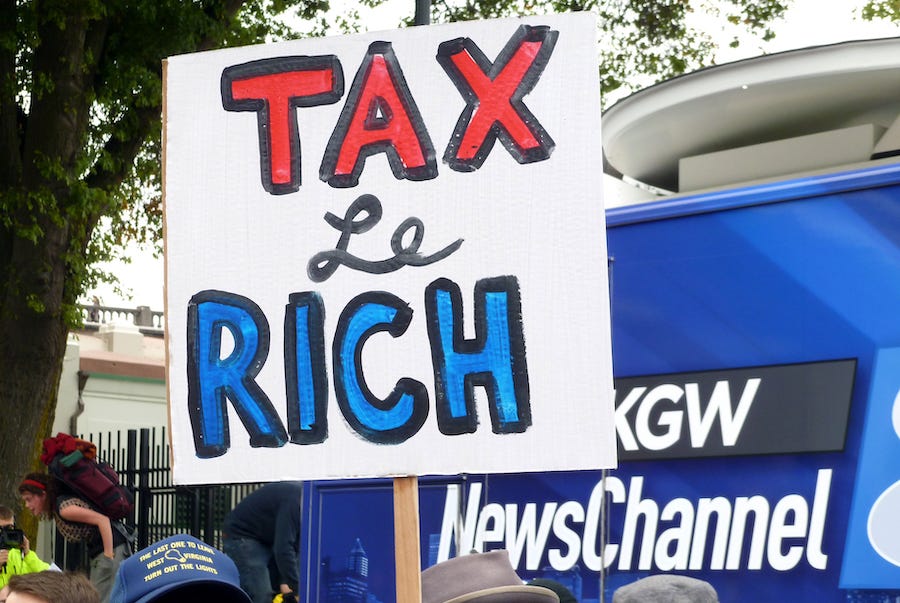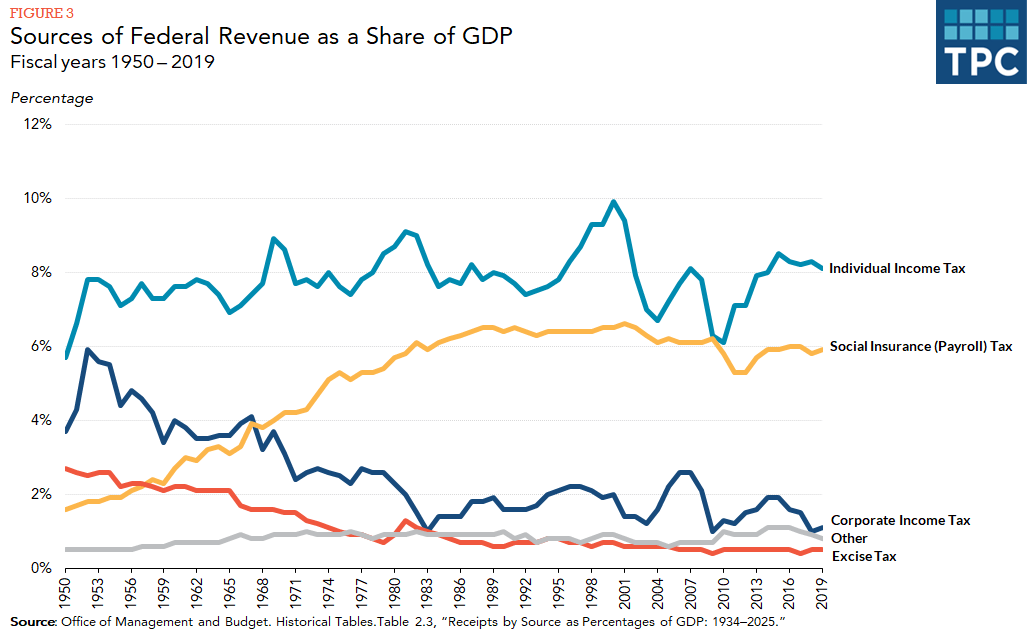Bernie Sanders Wants To Tax Companies That Pay CEOs 50 Times More Than Workers
That is still a very large amount of money!
In 2022, Walmart CEO and President Doug McMillon made $25.3 million — 933 times more than the median Walmart employee, who made $27,136 last year. James Quincey, the CEO of Coca-Cola, raked in $22.82 million, which was 1,883 times more than the median employee’s pay of $12,122 (shall we assume credit goes to violent rightwing paramilitary groups in Latin America for that one?). We could go on, and for a while. In 2022, the average US American CEO made 344 times what the median worker at their company made.
Most Americans — even a majority of Republicans — are not very happy about this situation! According to a 2022 study, 72 percent of us would really like to see CEO pay get capped.
That is why last week, Sen. Bernie Sanders (I-Vermont) with Sens. Elizabeth Warren (Massachusetts), Ed Markey (D-Massachusetts), and Chris Van Hollen (D-Maryland), as well as Reps. Barbara Lee (D-California) and Rashida Tlaib (D-Michigan), introduced the Tax Excessive CEO Pay Act!
The Tax Excessive CEO Pay Act would, they said in a collective statement, “take on corporate greed by raising taxes on companies that pay their top executives at least 50 times more than the pay of a typical worker.”
That is quite generous when you consider the fact that the average CEO in the 1970s only made about 30 times what the average worker made. If that were the case today, most CEOs would be making around a million a year, which seems like a relatively livable wage. It’s also the amount that most Americans think CEOs are making. One analysis, published in famous lefty rag the Financial Times, noted that capping CEO pay at a million a year would work out pretty nicely for workers, were the difference distributed among them.
The analysis found that AMC was among at least 13 public US companies that could have increased pay for their median worker by 10 per cent or more in 2020, if the chief executive’s package had been cut to $1m and the difference redistributed. Another 110 US companies could have reduced the CEO’s pay to $1m and given each worker at least an additional $400. That’s a sum frequently cited in discussions of economic inequality, after the Federal Reserve said more than a third of Americans would struggle to pay an unexpected bill of that amount.
That would sure be nice, but that’s not exactly what this bill will do.
Rather, it would raise the corporate tax rate by one percent on companies that pay their CEOs more than 50 times the median worker’s salary, with that percentage increasing as the multiples increase, going up to five percent once it hits 500 times more. It would also only apply to businesses that make over $100 million a year.
It will also be quite easy to avoid having to pay any of this tax at all. As the statement points out, if “companies increased annual median worker pay to just $60,000 and reduced their CEO compensation to $3 million, they would not owe any additional taxes under this plan.” That sounds a lot like something that could work out quite nicely for everyone involved.
The bill will raise $150 billion in 10 years — tax money that could go to supporting the working poor (a term which, by the way, should not exist).
According to the legislators, had this policy been in effect in 2022:
Walmart would have paid up to $754 million more in taxes.
Google would have paid up to $3.07 billion more in taxes.
Home Depot would have paid up to $840 million more in taxes.
JPMorgan Chase would have paid up to $1.04 billion more in taxes.
Nike would have paid up to $233 million more in taxes.
McDonald’s would have paid up to $92 million more in taxes.
That is a lot of money with which we could have done some very nice things for people! (Let me pretend for a moment that it wouldn’t have just gone directly into the Pentagon’s coffers, okay?)
“The American people understand that today we are moving toward an oligarchic form of society where the very rich are doing phenomenally well, while working families continue to struggle to put a roof over their heads, feed their families, and pay for the basic necessities of life,” Sen. Sanders said in a statement. “The American people are sick and tired of CEOs making nearly 350 times more than their average employees while over 60 percent of Americans live paycheck to paycheck. At a time of massive income and wealth inequality, the American people are demanding that large, profitable corporations pay their fair share of taxes and treat their employees with the dignity and respect they deserve. That is what this legislation will begin to do.”
Some may point out that the actual salaries of these CEOs are not so astronomical and that the vast majority of their compensation comes from stock options, stock awards, bonuses and other things that are contingent on how well the business does. Sometimes! Other times they do stock buybacks even when the company does not do well, which is why we really ought to make those illegal again like they were before 1982.
But executives are not the only reason a company does well, and they wouldn’t be able to make obscene amounts of money if it were not for the workers. So why shouldn’t those at all levels share in the wealth when a company does well? Part of the issue is that workers have increased productivity over the years but the only people who have been reaping the benefits have been those at the top.
It’s not just that they are not paying their employees enough to live or not paying them their fair share — in many cases they are not paying their employees enough to work. Because in order to work most jobs, people have to be able shower, wash their clothes, get dressed, have some place to sleep, have food to eat, have a cell phone and transportation back and forth. That is the all bread, no roses bare minimum just to ensure that they can function well enough to do their jobs and help make that CEO his or her millions. If they do not want to pay their employees enough to do those things, the rest of us have to make up the balance. A 2015 study found that low wages cost taxpayers $152 billion a year.
And yet, the share of our GDP that comes from corporate taxes has greatly decreased over time, while the share that comes from payroll taxes has gone way up.
It’s also worth noting that reducing the amount of CEO and executive compensation would also make the idea of becoming an enormous conglomerate significantly less appealing — because hey, if you’re only going to make three million, why spend so much buying out other companies? This, too, would serve to balance out wealth inequality and limit the amount of monopsony power these corporations have to keep wages down. Capitalists like to talk about how “competition” keeps wages fair because workers can just go someplace else if they don’t like their employer, but when you have these massive companies exerting so much control over the labor market … it doesn’t quite work that way.
In addition to the changes to taxes, the bill also “requires the Treasury Department to issue regulations to prevent tax avoidance, including against companies that increase the use of contractors rather than employees” and would require all companies to make their CEO-to-median-worker pay public.
The bill is already proving to be quite popular in the House, with multiple other legislators rushing to sign on themselves — including Reps. Eleanor Holmes Norton (D-D.C.), Bonnie Watson Coleman (D-New Jersey), Ro Khanna (D-California), Jesús G. “Chuy” García (D-Illinois), James P. McGovern (D-Massachusetts), Ilhan Omar (D-Minnesota), Pramila Jayapal (D-Washingon), Cori Bush (D-Missouri), Jared Huffman (D-California), Raul Grijalva (D-Arizona), and Jamaal Bowman (D-New York). Yes, curbing exorbitant CEO pay and corporate greed is what all the cool kids are going to be doing this spring, so everyone’s going to want a piece of this sweet, sweet legislative action.
This is something we know the people definitely want, and something legislators ought to be embarrassed to vote against (though, admittedly, I have been very wrong about this before). It’s also smart, because it will force Republican legislators to go to bat for outrageous CEO pay, which is gonna be a little bit of a mood-killer for those employing populist affectations.
PREVIOUSLY:








Its almost as if something changed starting in 1980 that fucked most of the population... Let me think back....
What kills me about CEOs is how many of them are paid to 𝘧𝘢𝘪𝘭. Time after time you read about CEOs who have run their companies into the ground if not worse, and they get eight-figure golden parachutes on the way out.
Christ, even pro athletes get overpaid for at least what they 𝘩𝘢𝘷𝘦 done and have the potential to do more of. If they start screwing up big time, their asses are gone, and they don't get a dollar more than what they have coming under whatever contract their agent was smart enough to negotiate. CEOs, OTOH, get lavished with money no matter what they do -- or how badly they screw up.
I just don't fucking get it.